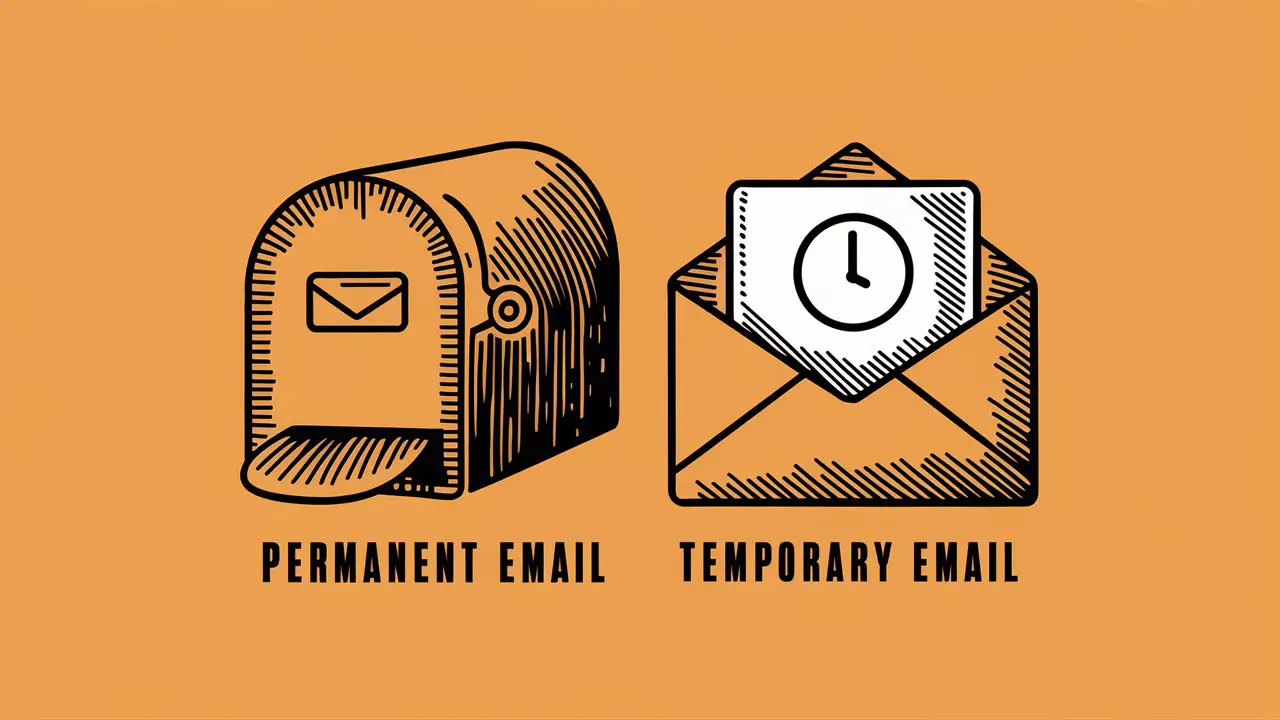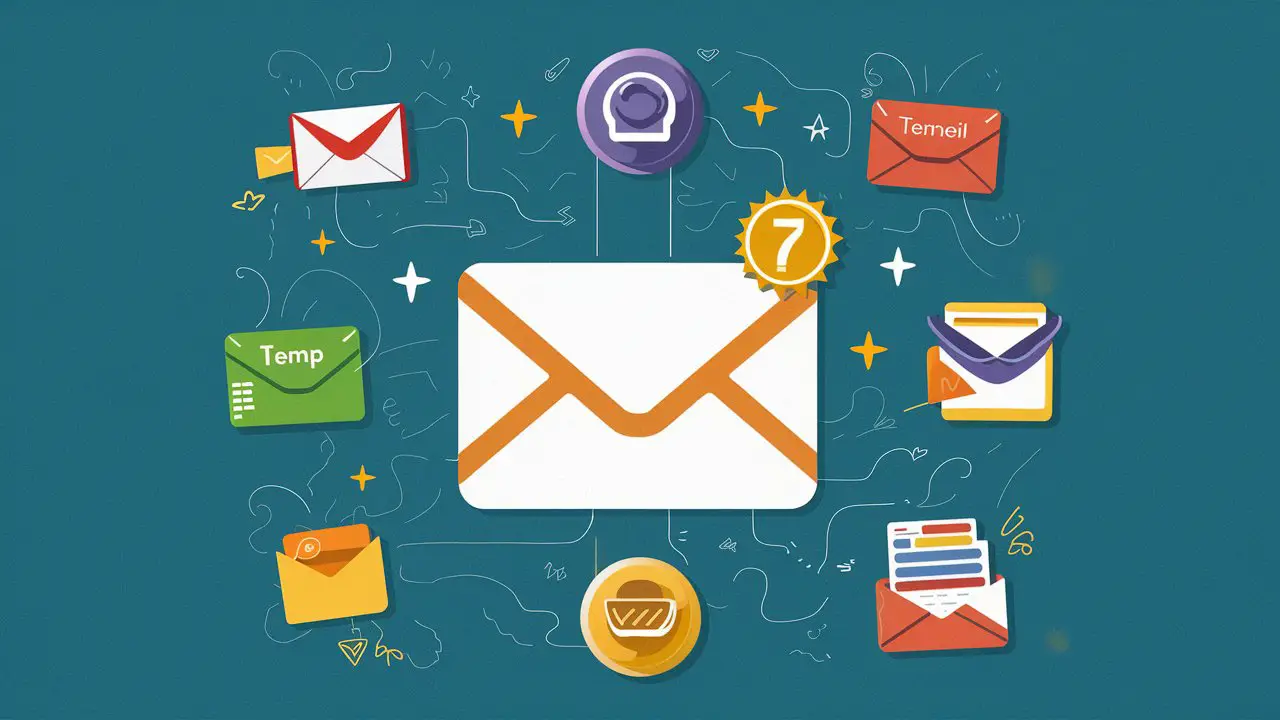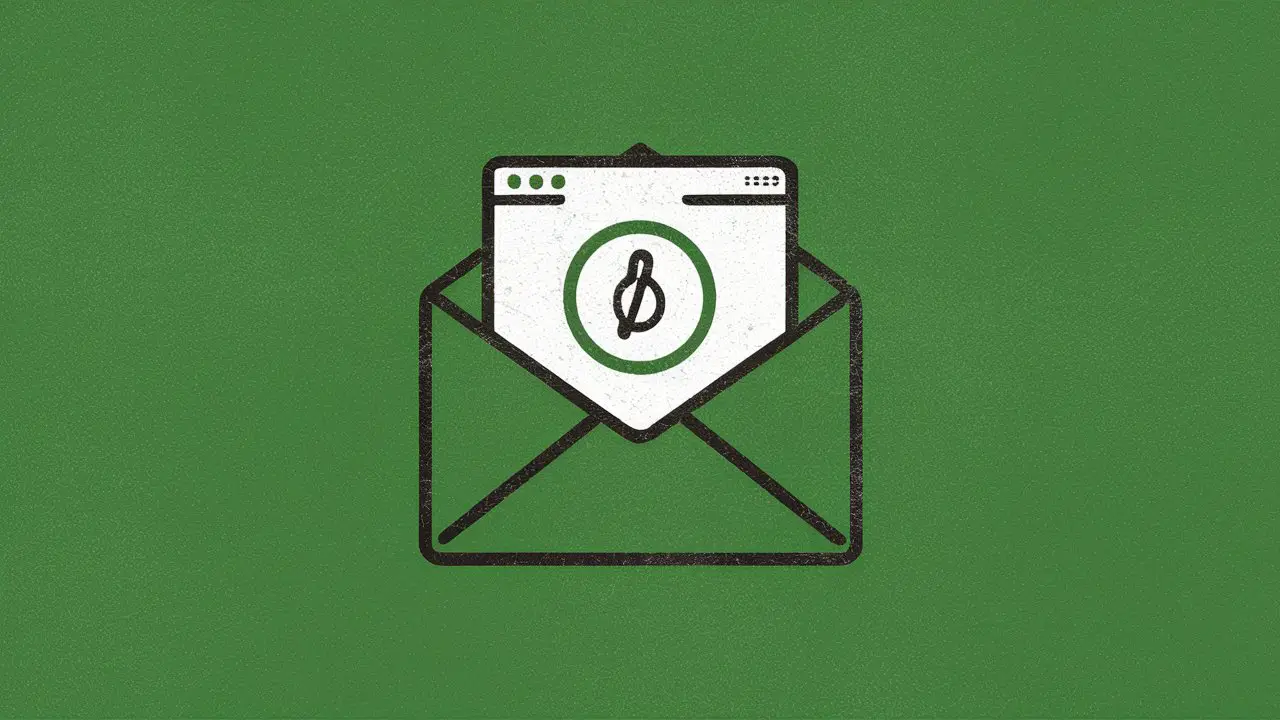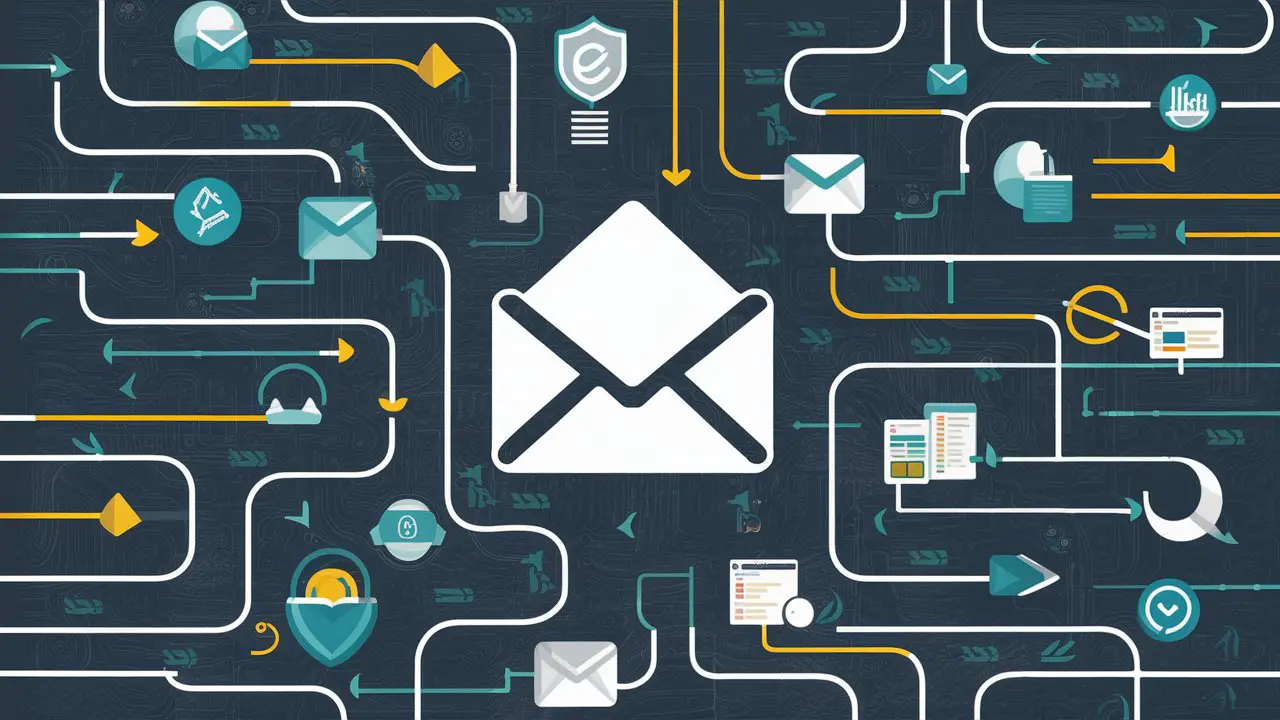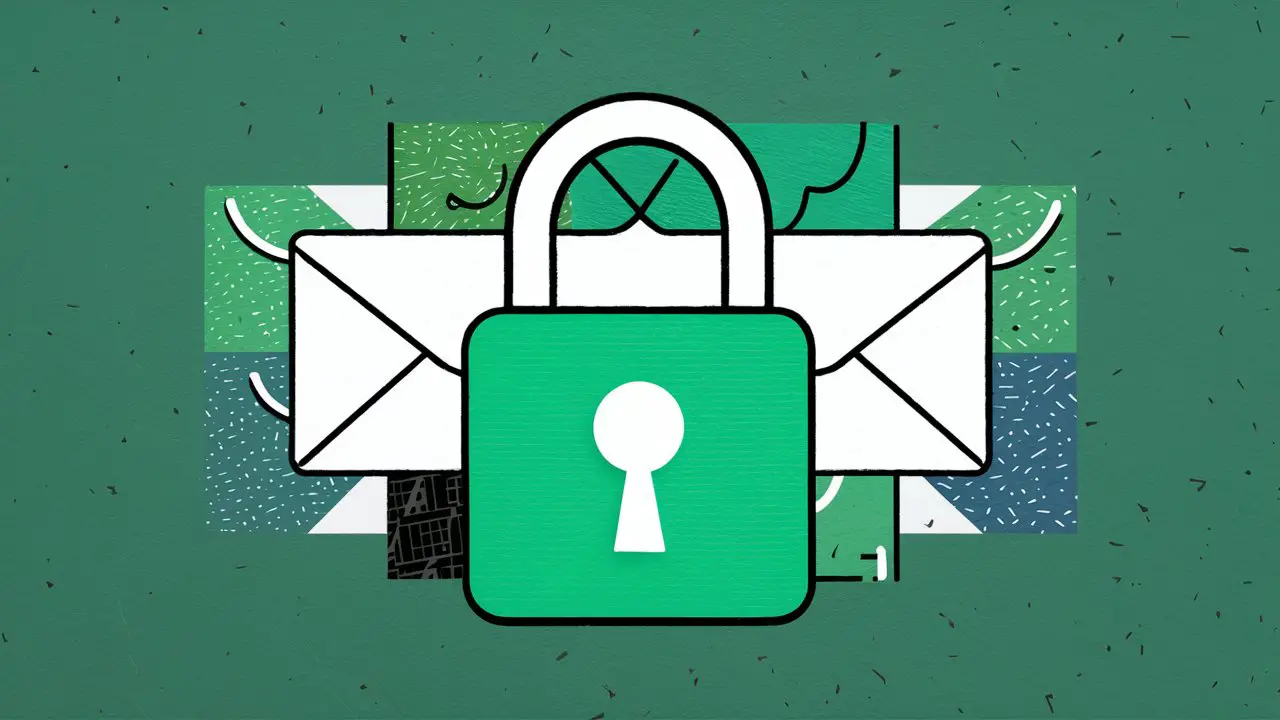The debate between temporary and permanent email addresses is a modern-day conundrum, reflecting a choice between transient convenience and enduring reliability. This article explores the nuances of both types of email addresses, dissecting their advantages and disadvantages to provide a comprehensive overview for users seeking to make an informed decision.
Key Takeaways
-
Temporary emails offer privacy and convenience, ideal for short-term use and reducing inbox clutter without long-term commitment.
-
Permanent emails are essential for professional correspondence, personal branding, and maintaining long-term relationships.
-
While temporary emails protect against spam and cyber threats, they may not be suitable for all services and can limit user credibility.
-
Managing permanent email accounts requires effort, including sorting emails and updating contact information, but offers stability.
-
Choosing the right type of email address depends on individual needs for privacy, security, convenience, and professional representation.
Understanding Temporary and Permanent Email Addresses

Defining Temporary Emails
Temporary email addresses, often referred to as disposable emails, are designed for short-term use and cater to users seeking privacy and a quick solution for specific tasks. These addresses are ideal for situations like signing up for online services or accessing gated content, where there is a high risk of receiving spam.
Temporary emails act as a buffer, protecting your main inbox from an overload of unsolicited messages and potential security threats.
While they offer a layer of anonymity and can be created swiftly, temporary emails are not intended for long-term communication or relationships. Their transient nature means they may not be recognized or accepted by all online services, which can impose certain limitations on their use.
Characteristics of Permanent Emails
Permanent email addresses are designed for longevity and are often integral to one's online identity. They facilitate consistent communication and are essential for maintaining professional and personal relationships over time. Unlike their temporary counterparts, permanent emails are associated with a higher level of commitment and are typically used for important correspondences.
-
Tied to individual or organization identity
-
Facilitate long-term relationships and professional correspondence
-
Offer stability and consistency in communication
Permanent email addresses are a mainstay in the digital world, serving as a gateway to various online services and platforms.
While they provide a sense of familiarity and reliability, permanent email addresses also come with the responsibility of managing security risks. They are inherently linked to your personal information, making them a target for cyber threats such as hacking and phishing. It is crucial to employ robust security measures to protect your permanent email account from potential vulnerabilities.
Comparing Longevity and Stability
When it comes to email addresses, longevity and stability are often key considerations. Temporary emails typically have a predetermined lifespan, which can range from a few minutes to several days, depending on the service provider. In contrast, permanent email addresses are designed for long-term use, with the expectation that they will remain active as long as the user requires.
The stability of an email address is also tied to the service provider's policies and the user's maintenance of the account. Permanent emails usually require regular activity to remain active, while temporary emails are inherently unstable due to their short lifespan. Here's a quick comparison:
-
Temporary Emails: Short-term, often expire after a single use or a set time period.
-
Permanent Emails: Long-term, remain active with consistent use and proper account maintenance.
While temporary emails offer a quick and disposable option for online interactions, permanent emails provide a stable and reliable means of communication, essential for ongoing personal and professional relationships.
Privacy and Security Considerations

Anonymity with Temporary Emails
Temporary email addresses serve as a shield for your digital identity, offering a significant level of anonymity when engaging in online activities. These addresses are ideal for single-use interactions or situations where you prefer not to disclose your primary email.
-
Sign up for online services without revealing your real email
-
Participate in forums or transactions with privacy
-
Access sensitive information with reduced risk of spam and data breaches
Temporary emails act as a buffer, limiting exposure to your permanent email and protecting against potential cyber threats.
While temporary emails are beneficial for privacy, they may not be suitable for all purposes. Their transient nature means they are not ideal for maintaining long-term communications or relationships. Some platforms may also restrict the use of temporary emails, which can limit their effectiveness in certain contexts.
Vulnerabilities of Permanent Emails
Permanent email addresses are often a fixture of our online identities, but this comes with inherent risks. These addresses are prime targets for cyber threats such as hacking and phishing attacks. The connection to our personal or professional lives makes them valuable to cybercriminals, who can exploit them for unauthorized access to sensitive information.
-
Multifactor authentication is a critical security measure to protect permanent email accounts.
-
Deploying DKIM, SPF, and DMARC protocols can significantly reduce the risk of email spoofing and phishing.
-
Regularly updating passwords and being vigilant about suspicious emails are essential practices.
While temporary emails offer a degree of anonymity and protection, the vulnerabilities of permanent emails require proactive security measures to ensure the safety of users and their data.
It is crucial to stay informed about the latest security practices and to implement them diligently. The permanence of these email addresses demands a higher level of security awareness and action to guard against the evolving landscape of cyber threats.
Mitigating Cyber Threats
In the digital age, mitigating cyber threats is crucial for both temporary and permanent email users. Temporary emails can serve as a barrier against unsolicited messages and potential security breaches. However, users must also be vigilant with permanent email accounts, implementing robust security measures to protect sensitive information.
-
Use strong, unique passwords for each account.
-
Enable two-factor authentication for an added layer of security.
-
Regularly update software to patch any security vulnerabilities.
-
Be cautious of phishing attempts and suspicious links.
By compartmentalizing online activities and using temporary emails for less critical communications, individuals can significantly reduce their digital footprint and the associated risks.
While temporary emails offer a level of anonymity, they should not replace the comprehensive security practices necessary for permanent email accounts. These include using encryption such as 256-bit SSL, maintaining physical security measures, and ensuring legal compliance with virtual mailbox services.
Convenience and Flexibility in Email Management

Ease of Use for Temporary Emails
Temporary email addresses are synonymous with ease of use. They are crafted for simplicity, allowing users to generate a new email within seconds for immediate use. This quick creation process is particularly beneficial for online activities that are short-lived or require a degree of privacy.
-
Create a new email address instantly
-
Use for specific tasks like sign-ups or trials
-
Discard after use to avoid spam and clutter
Temporary emails stand out for their ability to reduce inbox clutter. As highlighted by Alore.io, they are instrumental in Spam Reduction, ensuring that your primary inbox remains free from unwanted messages and promotional emails. This aspect of temporary emails is especially appealing to those who engage in numerous online interactions that could potentially lead to an influx of spam.
Temporary email addresses offer a practical solution for managing online interactions with minimal commitment. Their transient nature means you can engage in various online activities without the worry of long-term consequences or the need to sift through a cluttered inbox.
While temporary emails provide a convenient and flexible option for managing email communication, it's crucial to be aware of their limitations. They are not designed for sustained interactions and may not be recognized by all online services, which could pose challenges for users relying on them for more than just a fleeting exchange.
Maintenance of Permanent Email Accounts
Maintaining a permanent email account involves a series of regular tasks to ensure its effectiveness and security. These tasks range from organizing your inbox to safeguarding against potential cyber threats. A well-maintained email account is crucial for uninterrupted professional and personal communication.
-
Regularly update passwords to prevent unauthorized access.
-
Sort and organize emails into folders for better efficiency.
-
Unsubscribe from unwanted newsletters and promotions to keep the inbox clutter-free.
-
Regularly back up important emails to avoid data loss.
-
Use filters and rules to automate sorting and reduce manual effort.
A separate browser for every email account can enhance management by compartmentalizing each account, thus reducing the risk of mixing personal and professional correspondence.
While these steps can be time-consuming, they are essential for the smooth operation of your permanent email account, ensuring that you stay connected with your contacts and maintain a professional online presence.
Inbox Management Strategies
Effective inbox management is crucial for maintaining a clean and organized email experience. Automatic mail filters and folder organization can significantly reduce the time spent sorting through emails. For those seeking additional convenience, services often allow adding extra mailbox users and recipients, sometimes for an additional fee.
Temporary email addresses streamline the process even further. With the ability to create and dispose of addresses quickly, they offer a hassle-free solution for managing multiple email interactions without the clutter. This approach aligns with strategies for maintaining a clean inbox with Temp Mail, enhancing online efficiency.
In the era of limited storage, users had to meticulously manage their inboxes to avoid reaching capacity. Today, the abundance of storage and advanced management tools have transformed how we handle our digital correspondence.
While permanent email services provide features like complete indexing of sender information and sortable management grids, they often come with a cost. For instance, some services offer free physical storage for a limited time and discounted mail forwarding, but these benefits are typically tied to monthly fees ranging from $10 to $30.
Professionalism and Personal Branding

The Role of Permanent Emails in Professionalism
In the realm of professional communication, permanent email addresses are indispensable. They not only establish a sense of identity but also convey a level of seriousness and commitment that is often required in business environments. A permanent email address linked to a recognized domain enhances credibility and fosters trust among clients and colleagues.
-
Consistency: A permanent email address ensures a consistent point of contact, crucial for ongoing business relations.
-
Branding: It reflects your personal or company brand, reinforcing professional image with every email sent.
-
Record Keeping: Allows for a reliable archive of correspondence, essential for referencing past communications.
While temporary emails serve their purpose for privacy and short-term interactions, they lack the professional appearance and continuity provided by a permanent address. In a professional setting, the permanence of an email address is often synonymous with the reliability of the individual or organization it represents.
Temporary Emails for Casual or One-off Interactions
Temporary email addresses excel in scenarios that require a quick, no-strings-attached mode of communication. They are ideal for casual or one-off interactions where the need for a lasting connection is absent. For instance, when signing up for a single event, downloading a free resource, or testing a service, a temporary email can serve as a barrier against future spam and maintain the cleanliness of your primary inbox.
-
Sign up for online services
-
Access gated content
-
Register for events
-
Download free resources
Temporary emails act as a buffer, protecting your main email account from the clutter of promotional messages and potential security threats associated with exposing your permanent address.
While they offer immediate privacy and reduce the risk of spam, temporary emails are not designed for sustained communication. Their transient nature means that any long-term engagement or follow-up would necessitate a more stable and identifiable email solution.
Building and Maintaining Online Relationships
In the digital age, permanent email addresses are essential for nurturing long-standing relationships. They provide a stable platform for ongoing communication, whether for personal connections, professional networking, or creative collaborations. Unlike temporary emails, permanent addresses are associated with a consistent identity, making them more suitable for building trust and recognition over time.
-
Permanent emails facilitate deeper connections by allowing for a history of shared experiences and interactions.
-
They are crucial for professional networking, where reliability and a professional image are paramount.
-
For creative collaborations, a permanent email serves as a repository of ideas, feedback, and progress.
The value of a permanent email address lies in its ability to archive meaningful exchanges that can be revisited and built upon. It's not just about the messages themselves, but the narrative they create over time, weaving together the fabric of a relationship.
While temporary emails offer the advantage of maintaining anonymity, they lack the continuity necessary for relationships that thrive on accumulated history and shared memories. The permanence of an email address can mirror the enduring nature of the relationships it helps to foster.
Limitations and Restrictions

Shortcomings of Temporary Email Services
Temporary email addresses, while convenient for short-term use, come with inherent limitations. They are not designed for sustained communication or the nurturing of long-term relationships. Their transient nature means that any continuity in correspondence is lost once the email expires or is discarded.
-
Lack of permanence can disrupt ongoing interactions.
-
Not suitable for official or important transactions that require a reliable point of contact.
-
Potential for service restrictions that may limit functionality in certain contexts.
Temporary emails serve a specific purpose but fall short when stability and consistent communication are required. Their use is best limited to scenarios where privacy is the main concern and long-term engagement is not anticipated.
Challenges with Permanent Email Reliability
While permanent email addresses are a staple of digital communication, they are not without their challenges. Email domain reputation plays a crucial role in the deliverability of messages. Emails from domains with a tarnished reputation, often due to a history of spam or phishing, are more likely to be filtered into spam folders, impacting the reliability of communication.
-
Maintenance: Regular updates and security measures are required to maintain the integrity of a permanent email account.
-
Vulnerability: Permanent emails are more exposed to cyber threats, necessitating vigilant protection.
-
Reputation Management: It's essential to monitor and manage the domain's reputation to ensure emails reach their intended recipients.
The balance between the convenience of a stable email address and the need for ongoing vigilance against threats is a delicate one. Users must be proactive in securing their accounts to maintain the reliability that is expected of permanent email services.
Understanding Service Limitations
When considering the use of temporary or permanent email services, it's crucial to understand the inherent limitations that may affect user experience. Service limitations can significantly impact the utility and reliability of email services, leading to potential disruptions in communication.
For instance, some users have reported frustrations with the inflexibility of service plans, such as being unable to downgrade a subscription without paying for additional months. This lack of flexibility can be a deterrent for those who need a service temporarily or for a specific purpose.
Service limitations are not just a minor inconvenience; they can lead to real-world problems such as missed communications and financial losses.
Moreover, customer service quality varies greatly among providers. Issues like non-responsive support and failure to acknowledge service problems can exacerbate the limitations, leaving users with a negative experience. It's important to conduct thorough due diligence before committing to a service, as user reviews and experiences can offer valuable insights into what to expect.
Lastly, certain services impose restrictions on the types of items they handle, such as packages for forwarding services. These restrictions may include limitations on international shipping or the acceptance of packages, which can be a significant hindrance for users with global communication or shipping needs.
Conclusion
In summary, the decision between temporary and permanent email addresses is a matter of personal or professional necessity. Temporary emails offer a shield of privacy and a bulwark against spam, ideal for short-term interactions or situations demanding anonymity. Permanent emails, on the other hand, provide a stable and consistent means of communication, essential for ongoing relationships and professional engagements. Each type serves its purpose and comes with its own set of advantages and drawbacks. As digital communication continues to evolve, understanding the roles and risks associated with each can guide users to make choices that best suit their online activities and privacy concerns.
Frequently Asked Questions
What are the main advantages of using temporary email addresses?
Temporary email addresses provide anonymity, privacy, and a quick solution for avoiding spam and unsolicited emails. They are ideal for short-term interactions, such as signing up for newsletters or online services, without exposing your primary email to potential threats.
How do permanent email addresses benefit users?
Permanent email addresses offer stability, consistency, and are crucial for long-term relationships and professional correspondence. They facilitate personal branding and are essential for maintaining ongoing communication with friends, family, and business contacts.
Are temporary emails safe to use for online transactions?
Temporary emails can enhance privacy during online transactions by limiting exposure of your main email address. However, they should be used with caution, as they may not provide the same level of security and reliability as permanent email addresses for important communications.
Can temporary email addresses completely protect my privacy?
While temporary emails offer a layer of anonymity, they are not a foolproof solution for privacy. Users should still be cautious about the personal information they share online and consider additional security measures to protect their digital identity.
What are the common limitations of temporary email services?
Temporary email services may not be suitable for long-term communication, as the addresses are designed for short-term use. Some platforms may also restrict or block the use of temporary emails, and they may lack features found in permanent email services.
How do I choose between a temporary and a permanent email address?
Consider your priorities, such as privacy, security, and the nature of your online activities. If you need a quick, disposable option for a specific purpose, a temporary email might be right for you. For ongoing, stable communication, a permanent email is more suitable.
